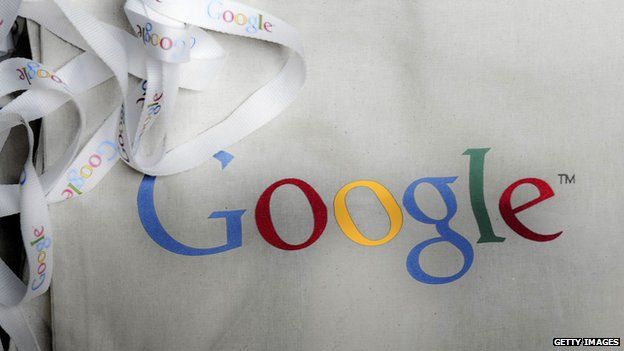Google in 'right to be forgotten' talks with regulator
- Published

Google is in talks with regulators over nearly 50 "right to be forgotten" cases it is accused of getting wrong.
The Information Commissioner's Office (ICO) said it hoped to resolve the dispute during a round of talks, but noted that it had enforcement powers available should they fail.
Google said it was taking its responsibilities seriously.
The news comes exactly one year since the controversial ruling by the Court of Justice of the European Union.
Along with other search engines, the internet giant has been obliged to remove links to articles that contain "inadequate, irrelevant or no longer relevant" information about an individual.
Under the decision, the person named must make a request to have the links removed from the results for a specific search.
Google has consistently said that it considers it a mistake to make it the arbiter in such cases, as the ruling effectively does.
The ICO confirmed to the BBC that it was discussing 48 cases it believed Google had not got "quite right" and has asked the internet giant to revise its decisions.
The action available to the ICO, should the discussions over those cases fail, includes a fine and a legally binding enforcement notice that could lead to court action, if the firm refused to comply.
But the body would only take such action if it found that Google's processes were not fit for purpose, rather than as a direct reaction to a single complaint.
An ICO spokesman said: "Since the details of the right to be forgotten ruling were first announced, we have handled over 183 complaints from those unhappy with Google's response to their takedown request.
"In around three-quarters of these cases, we have ruled that Google was correct to turn down an individual's request to have their information removed. This suggests that, for the most part, Google are getting the balance right between the protection of the individual's privacy and the interest of internet users."
But, it said, there were still a "significant number of cases where we believe Google haven't got it quite right and they have been asked to revise their decision".
While Google has done so in "many cases", the ICO said it was "looking to resolve the remaining cases through discussion and negotiation with Google, though we have enforcement powers available to us if required".
A Google spokesman said: "We haven't always got privacy right in Europe, not just because of errors we've made, but our attitude too. But our swift and thoughtful implementation of the right to be forgotten ruling showed that for Google this was a genuine 'we get it' moment.
"We've also worked hard to give users more control over the data we collect and we're looking at how to make those tools easier to find and use. So stay tuned."
Free speech campaigners have claimed that the ruling makes it easier for people to hide negative - though fair and accurate - references to them online and there have been sites set up to track the links taken down.
The BBC said in October 2014 that it would publish a list of its articles to which links have been taken down. A spokesman said on Wednesday that that remained its intention, though a decision on when and where to publish has not yet been taken.
However, others have pointed out that the ruling helps people avoid bad news stories unfairly dominating the results of searches related to them.
Google has said that it has received more than 250,000 requests to remove about 920,000 links, of which 41.3% have been removed from its search results, according to its transparency report.
While the ruling only applies to European sites, the deputy information commissioner David Smith told the Times that he believed Google should remove links on its US domain as well.
The ICO is also running a review of websites and apps used by children, it announced on Tuesday.
It will look at how information collection is explained and what parental permission is sought on 50 websites and apps.
It said: "The same approach will be taken by 28 other privacy enforcement authorities from around the world, with a view to publishing a combined report in the autumn. The ICO will also consider action against any website or app that it finds to be breaking the Data Protection Act."
- Published17 October 2014
- Published13 May 2014
- Published24 July 2014